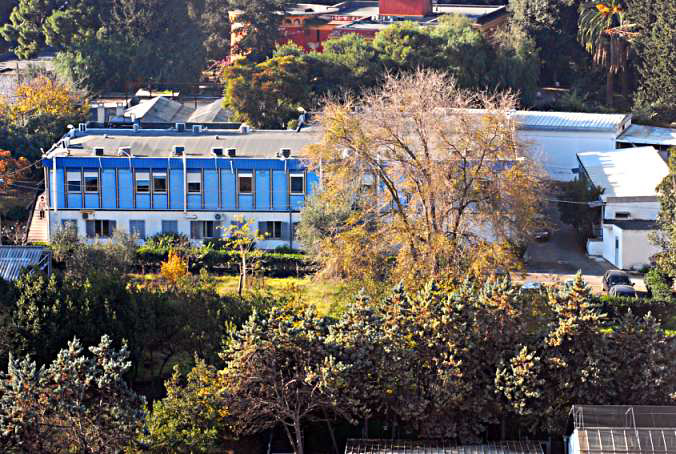IBBR Headquarter - Bari

The building of the IBBR/CNR headquarters in Bari
The Institute foundation

The building of the IBBR/CNR headquarters in Bari
The Institute of Germplasm was founded in 1969 on the proposal of Prof. G.T. Scarascia Mugnozza and later, in 2001, it merged with other CNR institutions becoming the Institute of Plant Genetics (IGV). Its main mission was the safeguard and preservation of plant genetic resources of interest for the Italian and Mediterranean agriculture, in particular of herbaceous and fruit tree species. In November 2013, as part of the CNR network reorganization, the Institute of Biosciences and BioResources (IBBR) was created by merging IGV with parts of the Institute of Genetics and Biochemistry (IGB) and of the Institute of Protein Biochemistry (IBP). The IBBR has its headquarter in Bari, and the main activities refer to agricultural science and biotechnology.
The GeneBank and the characterization of plant genetic resources
Since its foundation, the Institute contributed significantly to the safeguard of plant biodiversity, a fundamental prerequisite for the breeding of all species. Exploration, collection, multiplication, evaluation, characterization and documentation of genetic resources, as well as studies of genetic diversity, genepool evolution in crop species, research of new allelic variants and of physiological parameters underlying seed vitality, are among the main activities carried out at IBBR of Bari. In recent years, particular attention has been paid to crop species mostly widespread in the Mediterranean area, such as cereals (wheat, barley, oats, etc), grain legumes (faba bean, pea, bean, cowpea, chickpea, lupine, lentil, etc), fodder legumes (vetch, French honeysuckle, etc) and vegetables (cabbage, eggplant, pepper, artichoke, etc). Some “new” plant varieties, already included in the National Register of Varieties, have been patented, such as the Norba variety of durum wheat and the lines Farvento and Triventina of hulled wheat. The Institute has also given a significant contribution to the exploitation of some local bean varieties and the IGP pepper, respectively from Sarconi and Senise areas in Basilicata region. Furthermore, considerable interest was addressed to local agro-ecotypes (the so-called "typical productions") or endangered agro-ecotypes, to wild "relatives" of cultivated plants, to species potentially useful for nutraceutical and/or technological purposes, and finally to model species for genetic studies (i.e. Arabidopsis thaliana). Actually, the GeneBank is equipped with cold rooms at -20° and 0° C, with 30% relative humidity, for long and short/medium term seed conservation; moreover, it holds about 56.000 accessions belonging to more than 40 genera and about 600 species, also acquired through productive exchanges with other national and international institutions.
All data are regularly computerized and collected in the Mediterranean Germplasm Database (MGD, https://ibbr.cnr.it/mgd/) which makes easier the management of the available genetic resources, accurately labelled with unique codes and information (name of the explorer and/or donor, species, taxonomic family and genus, country of origin, seed conservation method, seed multiplication in experimental fields, and GPS coordinates).
Research activities
In addition to the traditional activities related to plant genetic resources management, other research lines have been developed in the fields of genetics and crop breeding and biotechnology. Consolidated approaches of biochemistry, molecular biology and bioinformatics are used, as well as innovative approaches of genotyping, phenotyping and "omics" technologies (genomics, transcriptomics, proteomics) to study specie evolution and food quality and safety. All the researchers at the IBBR headquarter are constantly and actively involved in several national and international research projects.
The long-term experience has made the Bari headquarter a centre of excellence for the word scientific community in the field of plant biodiversity safeguard, conservation, characterization and valorisation. This allowed to promote synergic collaborations with numerous public and private Italian (i.e. Departments of ex Agriculture Faculty, several CNR Institutes, Mipaaf, ENEA, etc) and international (EU, FAO, IPGRI, IITA, ICARDA, IPK, etc) Institutions.
Training activities
Through numerous agreements and collaborations with Universities and Institutions, the IBBR headquarter supports training activities for undergraduate and graduate students, post-docs and contractors, who can carry out their research projects and improve their knowledge in IBBR laboratories, equipped with state-of-the-art instruments for molecular biology and biochemistry.
(last updated: Jun 9, 2021)




